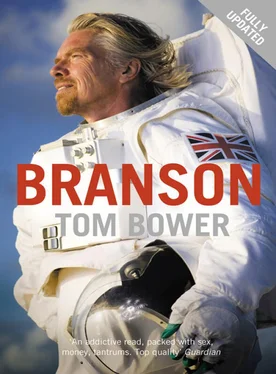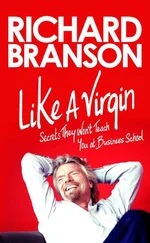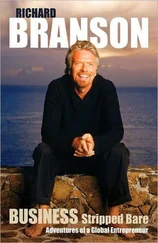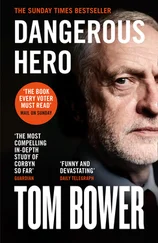Daily, the schoolboy dispatched dozens of letters appealing for interviews to celebrities culled from Who’s Who. In the late 1960s, youth was tolerated and even lauded by the famous who were intrigued by the turbulence of their children’s generation. Unprotected by a screen of press officers, their replies were surprisingly positive.
To the bewildered admiration of his contemporaries, Branson regularly carried into the classroom stacks of correspondence. He regaled his audience with the words addressed to him by writers, musicians, actors and politicians including Harold Wilson, the Prime Minister, and Ted Heath, the leader of the Conservatives. His success encouraged volunteers to write appeals for advertising and cajoling pleas to the famous for free articles. Richard Branson’s gift was his genial enthusiasm which disarmed those whom he approached for help. Even sceptics were seduced to espouse his ambition after listening to his bold account of a return to Soho to interview prostitutes for a sensational article in the new magazine. Soon, for the unusually worldly seventeen-year-old, Stowe had become insufferably parochial.
In 1967, Branson left the school and settled in the squalid basement of a friend’s house in Connaught Square, near Hyde Park, a desirable address in London, where, chanting the fashionable lure of ‘doing something really useful for young people’, he strove to complete the first edition of Student.
In an era when public schoolboys, even from Stowe, were still regarded as members of a rather staid Establishment, Branson was careful to present himself as a benign hybrid: part hippie and part charitable businessman. Controlling his awkward stutter when necessary, his telephone manner concealed his age to recruit a respected magazine designer for no fee; to secure paid advertising from major corporations; and to negotiate a printing contract for 50,000 copies of the magazine. In a testament to his style, during his sales patter, he would inaccurately boast of selling 100,000 copies but, if challenged, would switch from talking circulation to readership to conceal his exaggeration. Salesmanship relied upon a quality performance and Branson was a notable actor. The appearance of the slick first edition, a good imitation of many established glossy magazines, more than justified his confident sales pitch.
His unusual success in 1968 enticed other ex-public school teenagers seeking entertainment to join him. The attraction was his easy lifestyle inhabiting part of a four-storey house at 44 Albion Street in Bayswater which his parents had leased to share with their son. United by the safety net of parental wealth, Branson and his guests enjoyed the liberation of ‘Peace and Love’ in ‘Swinging London’. In a polite reciprocation for his hospitality, they agreed to sell their host’s magazine on the streets. The prospect of permanent parties in rent-free accommodation was fun.
Branson’s unthreatening self-confidence attracted people older than himself seeking spiritual liberation in an uninhibited atmosphere. Attractive girls, eager to experiment, camped on his floors to escape their parents, and in turn welcomed a stream of ex-public school boys equally willing to produce and sell Student magazine. Without questioning their host’s authority, they enjoyed music, drugs and sex and ate food collected at the end of the day from the dustbin of a local delicatessen. Their presence reassured Branson of his popularity and guaranteed an escape from solitude. Paying his guests just £12 per week for selling the magazine on the streets, he none the less retained their loyalty by blurring the stigma of their status as employees. Money, he emphasised, was irrelevant; his fun party glued his new ‘family’ together. In the spirit of the era, they were all contributing towards the good of mankind although no one quite understood how.
‘He plucks,’ Eve Branson admitted innocently, ‘what he wants out of you.’ From his office on the top floor, Branson was part of the gang yet avoided immersion in his own party. While the guests played downstairs, he was focused on the fortunes of his magazine. ‘He was like a country squire,’ recalled Sue Steward, an early employee. ‘We were having a party and all living together but it was always on his estate. You always knew he owned it all. He wasn’t really a hippie, ever.’ Enjoying the sex, ignoring the music, occasionally living in a haze of marijuana, he acknowledged expressions of loyalty and developed the notion that his magazine should become the vehicle for his financial independence.
Profiting from the magazine could have presented a dilemma. After all, he touted Student to contributors and advertisers as a philanthropic venture to help poor youth. Among articulate students at the end of the 1960s, the public good rather than personal benefit was the only justification for business. Profits were incompatible with ideals. But Branson was not plagued by the self-doubts infecting so many students of the sixties revolution. He believed in profit and any contradictions were easily brushed aside by fluent self-invention. Sensitive to the mood of the time, Branson convinced himself and others that all his commercial ventures were for society’s ‘good’. The rebellious public school boy adhered to the credo that his ambitions were for his employees’ benefit. Earning money was not a sin, if conducted in the proper manner. But it was preferable to always pronounce, ‘I haven’t gone into business to make money. I like the challenge.’ Combined with his blokeish ordinariness, it was a disarming performance. Connaught Publications, his unregistered company, never published accounts. None of the blissed-out party-goers in Albion Street were sure whether their employer earned profits, let alone how much. Secrecy, Branson learned to appreciate, was preferable to public disclosure and even the existence of that secrecy required concealment. His guests witnessed a performance in which the magazine became the passport to his next incarnation.
Influenced by violent agitation across Europe and America, especially against the war in Vietnam, the baby boomers were trashing traditions in confrontations with university administrators, police and politicians. Students, congregating around the London School of Economics, were immersed in an extraordinary political revolution. Although younger than the undergraduates and not having enrolled as a student, Branson purposefully attached himself to the politicised and articulate agitators as an equal. Among the real activists, the serious-looking youth disguising his comfortable background as the grandson of a judge appeared no different from the thousands of other protestors. Understandably, Branson did not reveal that he was neither left-wing nor understood the political feuds raging among the multitude of student factions in the midst of the Cold War. Branson’s natural style implied that he sympathised with the spirit of the times and that he shared the common goal of an egalitarian, classless meritocracy. For Tariq Ali and the other leading Marxists who were preoccupied by endless political arguments and organising perpetual demonstrations, the credentials or motives of any young person hovering silently on the fringe of their turbulence passed unquestioned. But while Ali and others would remain permanently oblivious to Branson, the interloper himself, searching for a niche, exploited his presence at a decisive moment of history.
Unmoved by politics or history, Branson none the less spotted a financial advantage which eluded those participants preoccupied with moral conflicts. Skilfully, by walking with the leaders of London’s huge demonstration against the Vietnam War, he positioned himself in 1968 as the editor and owner of Student magazine, and as a ‘Students’ Spokesman’. Newspaper photographs recorded Branson among the leaders of the march. While most demonstrators ended that day of protest bitter about police violence and frustrated by the state’s inhumanity, he had absorbed an invaluable insight into the new fickleness of the era.
Читать дальше












